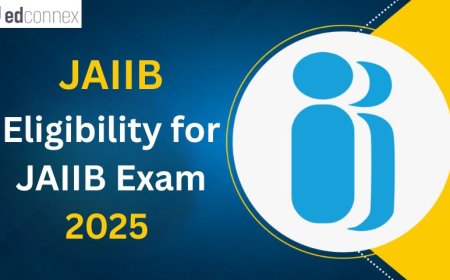CLAT 2025 Eligibility: Age, Qualification & Criteria
Check complete CLAT 2025 eligibility including age limit, academic qualification, and category-wise criteria for UG & PG law entrance in top Indian NLUs.

The Common Law Admission Test (CLAT) 2025 is one of the most competitive and prestigious national-level entrance examinations for students aspiring to study law in India. It is conducted by the Consortium of National Law Universities (NLUs) for admission into undergraduate (UG) and postgraduate (PG) law programs across 24 participating NLUs and various private universities. For the UG CLAT 2025, candidates must have completed their 10+2 (or equivalent) examination from a recognized board. The minimum qualifying marks for General, OBC, PwD, NRI, PIO, and OCI candidates is 45%, while for SC and ST candidates, the minimum is 40%. Those appearing in their 12th-grade board exams in 2025 can also apply provisionally but must produce proof of qualification at the time of admission. A notable advantage is that there is no upper age limit for CLAT UG, which means aspirants of all ages can pursue legal education, provided they meet academic standards. The UG CLAT exam tests candidates on English, Current Affairs, Legal Reasoning, Logical Reasoning, and Quantitative Techniques, making it essential to have strong comprehension and reasoning skills along with legal aptitude.
For the CLAT PG 2025, eligibility is defined for candidates who have completed a 3-year LLB or 5-year integrated LLB from a recognized university approved by the Bar Council of India (BCI). The required minimum score is 50% for General/OBC/PwD/NRI/PIO/OCI candidates and 45% for SC/ST candidates. Final-year law students are allowed to apply conditionally, with the requirement that they submit their final qualifying documents at the time of counseling. Similar to UG, the CLAT PG also has no upper age restriction, making it accessible to law graduates who wish to pursue LL.M programs for academic or professional advancement. The PG exam primarily focuses on core law subjects such as Constitutional Law, Jurisprudence, Contract Law, Criminal Law, and Torts. Additionally, it’s important for candidates to note that eligibility alone doesn’t guarantee admission; seat allotment also depends on rank, category, and domicile preferences, especially for NLUs that follow state-based reservation policies. Candidates are advised to consult the official CLAT 2025 brochure for full clarity on institutional-specific rules and prepare accordingly. Meeting the eligibility criteria is the first—and most crucial—step in your journey toward a successful legal education through CLAT.































































































